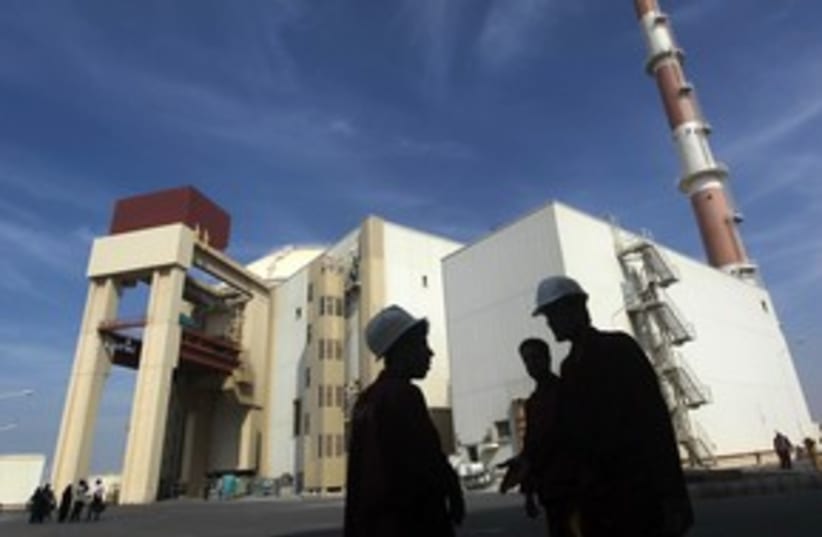RELATED:'German gov't, Iranian bank EIH circumvent sanctions'Congressman: US policy on Iran shows 'weakness'The plant near the Persian Gulf had been due to start producing electricity early this year after the process of loading nuclear fuel into the reactor core got under way last October.But Russia and Iran said late in February that the fuel would have to be taken back out of the reactor because broken pumps had sent small pieces of metal into the cooling system, raising fears that fuel rods could be damaged.Russia's state-run company Atomstroyexport, which builds nuclear power plants abroad, said fuel was being loaded again after it finished examining and cleansing the pipes and fuel assemblies."On April 8, 2011, loading of fuel rod arrays began at Bushehr," Atomstroyexport said in a statement. It said the removal of the fuel had been "a necessary measure" to ensure safety.
Nuclear fuel being reloaded at Iran power plant
Russian company says fuel being loaded again after it finished examining, cleansing pipes and fuel assemblies at Bushehr.

RELATED:'German gov't, Iranian bank EIH circumvent sanctions'Congressman: US policy on Iran shows 'weakness'The plant near the Persian Gulf had been due to start producing electricity early this year after the process of loading nuclear fuel into the reactor core got under way last October.But Russia and Iran said late in February that the fuel would have to be taken back out of the reactor because broken pumps had sent small pieces of metal into the cooling system, raising fears that fuel rods could be damaged.Russia's state-run company Atomstroyexport, which builds nuclear power plants abroad, said fuel was being loaded again after it finished examining and cleansing the pipes and fuel assemblies."On April 8, 2011, loading of fuel rod arrays began at Bushehr," Atomstroyexport said in a statement. It said the removal of the fuel had been "a necessary measure" to ensure safety.